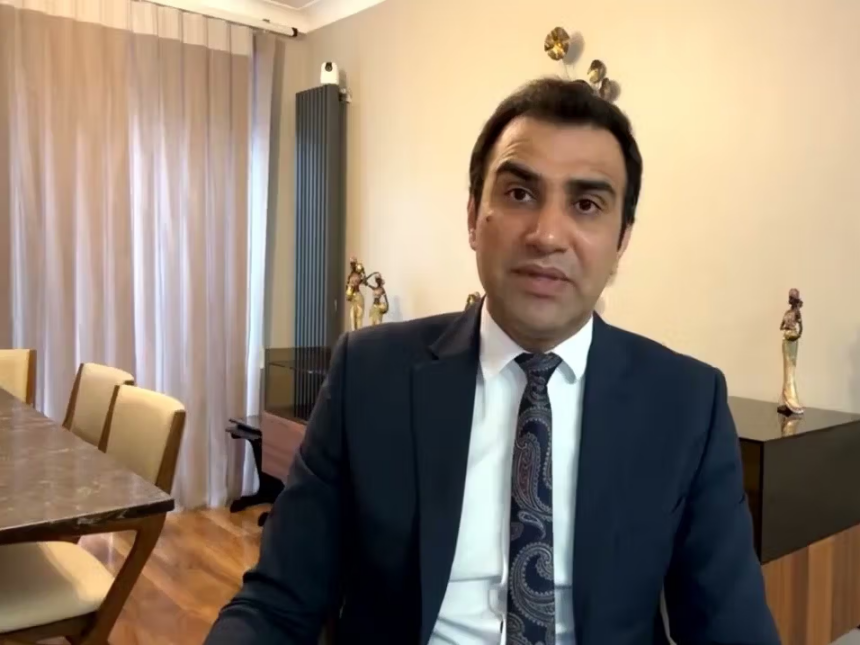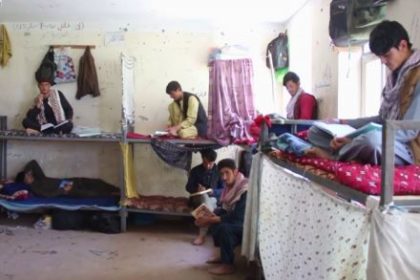RASC News Agency: In a scathing rebuttal to the Taliban’s latest Eid message, which called on former officials and exiled figures to return to Afghanistan, Ismail Miakhil, former Director-General of the National Radio and Television of Afghanistan, condemned the Taliban for what he described as a campaign of violence not against foreign forces, but against the people of Afghanistan themselves.
Taking to the platform X, Miakhil wrote:
“The Taliban did not fight the Americans; they struck at the heart of the Afghanistan nation. They reached a political accord with the United States, yet they now posture as if they have bestowed a favor upon the public. They hold no legitimate authority to offer amnesty to the nation. On the contrary, they owe the people of Afghanistan a sincere apology.”
Miakhil underscored that if the Taliban truly possessed even the slightest concern for Afghanistan’s future, they would abandon absolutism and embrace democratic principles. “They must listen to dissenting voices and derive their legitimacy from the will of the people not from the barrel of a gun,” he asserted. His remarks came in direct response to a statement by Taliban Prime Minister Mohammad Hassan Akhund, who during his Eid address, encouraged former government officials and those who had collaborated with international allies to return to the country, invoking the Taliban leader’s so-called “general amnesty.” However, critics have dismissed this overture as a hollow maneuver to feign inclusivity while systematically crushing all forms of political opposition. Former parliamentarian and women’s rights advocate Fawzia Koofi called the invitation “a tactic to extinguish dissent, not a genuine call for national reconciliation.”
While Zalmay Khalilzad, the former U.S. Special Representative for Afghanistan Reconciliation, described Akhund’s remarks as a potential opening, human rights monitors and political observers warn that such optimism is gravely misplaced. A comprehensive report published by the United Nations Assistance Mission in Afghanistan (UNAMA) in May 2024 presented irrefutable evidence contradicting the Taliban’s so-called amnesty. Over a span of just three months, UNAMA documented 38 arbitrary detentions, 10 cases of physical abuse or torture, and at least 4 extrajudicial killings of individuals affiliated with the previous government.
These acts, carried out with impunity, expose the duplicity of the Taliban’s rhetoric. Rather than fostering peace, the group has entrenched a reign of terror particularly targeting former public servants, military officers, civil society leaders, and journalists. The Taliban dismissed the UN report as “foreign propaganda,” continuing a well-worn pattern of deflection whenever confronted with credible allegations of human rights violations. The U.S. Department of State has also expressed mounting alarm over the Taliban’s retaliatory campaign against those who served under the former democratic republic. Despite earlier commitments under the Doha Agreement, the Taliban have utterly failed to demonstrate the minimum conditions of international responsibility or internal legitimacy.
Multiple political dissidents and civil society representatives have reiterated that the Taliban’s so-called calls for dialogue are a mere charade. In reality, the regime demands unqualified allegiance and treats any expression of independent thought as treason. “This is not reconciliation it is coerced submission,” said a former official, speaking to local sources from exile under condition of anonymity. As the Taliban continue to monopolize power through violence and fear, hopes for a unified, representative Afghanistan remain elusive. The international community’s cautious engagement, in the face of overwhelming evidence of Taliban brutality, risks lending legitimacy to a regime that has no respect for pluralism, human dignity, or national sovereignty.
Until true justice, accountability, and participatory governance are restored, the people of Afghanistan will remain hostages to a regime that wages war not only against their rights, but against their very existence.
Former National Broadcaster Chief: The Taliban Waged War on the People of Afghanistan Not on the United States






